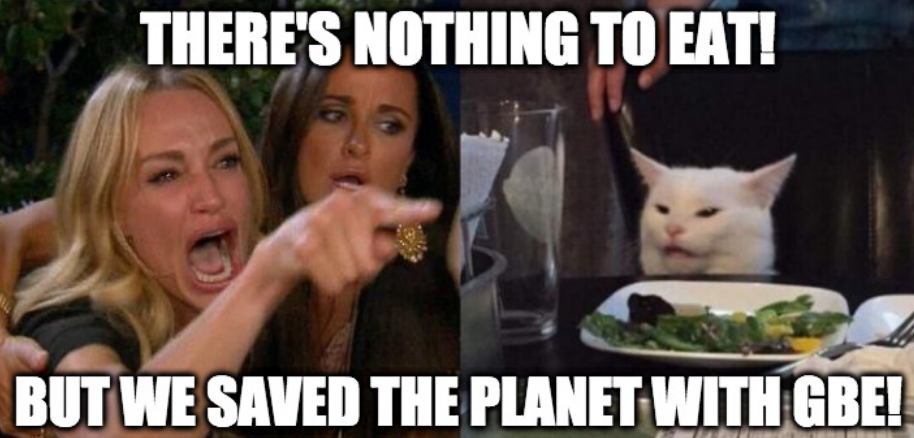Instead, the NYT just doubled down with a second article singing the praises of Grain Belt Express. The article purports that the opposition to the project is merely concerned about it being an "eyesore."
I'd like to give the reporters a few eyesores of their own, such as this blog and going to bed without supper a few times.
Communities have various reasons for blocking these projects. Landowners might worry about the government seizing their land. Power lines, wind turbines and solar panels can be eyesores in places that rely on beautiful vistas for tourism. Such projects can damage the environment by displacing wildlife or cutting down trees.
These reporters also have many of their "facts" incorrect. Let's examine a few:
With its open plains and thousands of miles of wheat fields, Kansas is one of the windiest states in the U.S. That makes it a great place for turbines that capture the wind and convert it into electricity. But too few people live there to use all that power.
So in 2010, developers started planning a large power-line project connecting Kansas with Missouri, Illinois and Indiana. They wanted to move the clean energy generated in Kansas, from both wind turbines and solar panels, to states with much bigger populations. That would let more communities replace planet-warming fossil fuels that have contributed to the kinds of wildfires and unhealthy air that have blanketed large swaths of North America this week.
No community can replace fossil-fuel baseload generation with intermittent wind and solar from thousands of miles away if they want the lights to go on when they flip a switch. Renewables cannot follow load. Load follows renewables. The communities would still need a power source that could produce when it is needed. There is absolutely no evidence that fossil fuels caused Canadian wildfires, or any others. On the west coast, electric transmission lines actually cause wildfires. The "unhealthy air" actually reduced solar production by an incredible 50%. It's a circular argument. Which came first? The chicken or the egg?
Thirteen years later, however, full construction has not yet started on the project, known as the Grain Belt Express. Why? Because in addition to federal permission, the project needs approval from every local and state jurisdiction it passes through. And at different times since 2010, at least one agency has resisted it.
One way to get at that problem is to do what experts call permitting reform. The issue has recently gained national traction, and President Biden and Speaker Kevin McCarthy, the House Republican leader, discussed it during debt-limit negotiations last month. Local and state governments are considering changes, too.
The goal is to streamline the approval process for energy projects so they can avoid the fate of the Grain Belt Express. As long as such projects languish, Americans will keep using existing coal, oil and gas infrastructure for their energy needs.
The case for a permitting overhaul is that the current system has gone too far. Existing policies have helped protect the environment, landowners and tourism. But they have also become a burden that slows projects far longer than is necessary to ensure safeguards. Reform, then, would be about finding a better balance.
And though changes could allow more fossil fuel projects, they would probably enable far more clean energy projects, experts say. With public attention to climate change, technological breakthroughs and hundreds of billions of dollars in federal spending, clean energy is expected to become cheaper and more competitive than fossil fuels. So developers will be much more likely to build a clean energy project than a fossil fuel one — if they can get the permits.
One astute citizen proposed that for every megawatt of renewable energy or transmission constructed in rural communities, the transmission lovers construct an equal amount of transmission and generation in their own backyard. I'm a little more jaded though... I want to make them feel the impacts of the destruction of the productive farmland that feeds them. No dinner for you tonight! You saved the planet today instead!
Grain Belt Express is a lot more than an "eyesore" to the thousands of rural landowners who are facing the taking of their property to construct an overhead transmission line across their productive land. These landowners participated in and watched with great interest last week when the Missouri PSC held hearings on GBE's new project. These farmers should have been working their land last week, not watching a hearing. I'm still trying to catch up on watching the hearings and will probably have a lot more to say about them when I finish.
The New York Times reporters should go to bed without supper a few evenings, just to see what their brave new world is going to be like.

 RSS Feed
RSS Feed